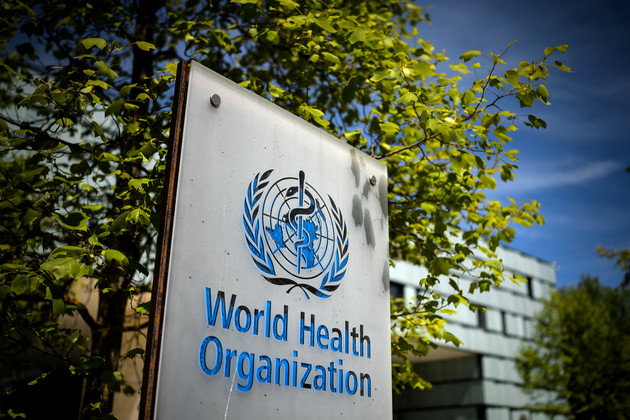
The global health body stands to lose hundreds of millions of dollars in funding
The executive order also demands the secretary of State to cease negotiations on the pandemic agreement WHO member countries have been negotiating for years. | Fabrice Coffrini/AFP via Getty Images
Washington, January 21 (RHC)-- U.S. President Donald Trump signed an executive order Monday night withdrawing the United States from the World Health Organization, the WHO.
The move, which was widely anticipated, will see the U.S. leave the global health body within a year from the official notification to the United Nations and the WHO, which Trump tasked newly confirmed Secretary of State Marco Rubio to do.
Congress doesn’t need to agree, but the U.S. must continue paying its dues, according to the 1948 U.S. resolution accepting WHO membership.
However, Trump directed Rubio and the director of the Office of Management and Budget to “pause the future transfer of any United States Government funds, support, or resources to the WHO” with “practicable speed,” in a move reminiscent of the first withdrawal attempt in 2020.
Trump also directed the two officials to “recall and reassign” U.S. government personnel or contractors working with the WHO and find “credible and transparent” U.S. and international partners to replace the “necessary activities previously undertaken by the WHO.”
The executive order also demands the secretary of State to cease negotiations on the pandemic agreement that WHO member countries have been negotiating for years, with a deadline to conclude set for May.
The executive order notes that actions taken to implement amendments to the International Health Regulations — a set of technical rules governing responses to outbreaks, among other issues — which countries agreed to last year, “will have no binding force on the United States.”
The withdrawal will generate a loss of hundreds of millions of dollars for the WHO’s core budget. The U.S. provides about a quarter of that budget as a mandatory membership fee but often gives more — with the figure ranging from $163 million to $816 million in recent years, according to health policy think tank KFF.
Trump’s order noted that the “WHO continues to demand unfairly onerous payments from the United States, far out of proportion with other countries’ assessed payments.”
The loss could hinder the WHO’s ability to swiftly and effectively respond to infectious disease outbreaks and other emergencies around the world, among others.
In exchange, the U.S. is expected to lose access to the global network that sets the flu vaccine’s composition every year. It will also weaken the Centers for Disease Control and Prevention’s ability to surveil and contain health threats abroad, according to global health experts.

